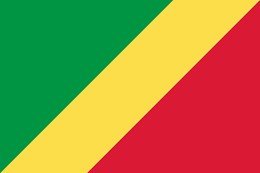Workforce Africa simplifies hiring, payroll, talent management as well as your compliance needs for employees and independent contractors in Congo. No need for a subsidiary or entity setup. From contracts and onboarding to taxes, payroll, and admin tasks, partnering with us — the Employer of Record in Congo, will help you focus on growth for greater levels of success.
How Employer of Record (EoR) in Congo Works
Workforce Africa makes it hassle free to hire and manage your remote staff in Congo without having to first set up a subsidiary or entity in the country. We handle staff contract management and onboarding, payroll, compliance, taxes, and other administrative matters. With Workforce Africa, you can now focus more on strategic activities and growing your business. These items include >>
Employment Contracts in Congo
A. Types of Employment Contracts
- Permanent (Indefinite-Term) Contract
- Fixed-Term Contract (not exceeding two years, renewable once)
- Apprenticeship or Training Contracts
- Temporary Work Contract (for specific tasks or periods)
All employment contracts must be in writing when exceeding 3 months or when required by law.
B. Essential Clauses
- Identity of parties
- Job title and responsibilities
- Remuneration and benefits
- Working hours
- Probation period
- Termination terms
Working Hours in Congo
- Standard Workweek: 7 hours per day, 35 hours per week.
- Overtime: Compensated at higher rates as determined by collective agreements or ministerial orders.
Observed National Holidays and Vacation
The Republic of the Congo observes the following public holidays:
- New Year’s Day – January 1
- Labour Day – May 1
- Reconciliation Day – June 10
- Independence Day – August 15
- All Saints’ Day – November 1
- Republic Day – November 28
- Christmas Day – December 25
- Easter Monday – Date varies
- Ascension Day – Date varies
- Whit Monday – Date varies
Expats, Visas & Work Permits
- Visa Application: Foreign nationals intending to work in the Republic of the Congo must obtain a Work Visa prior to entry. This visa is typically issued based on an employment offer from a Congolese employer.
- Work Permit Application: Employers are responsible for securing a Work Permit for their foreign employees. The process involves:
- Submission of the employment contract approved by the Agence Congolaise pour l’Emploi (ACPE)
- Proof of the employee’s qualifications
- Payment of relevant fees
- Compliance with sector-specific quotas for foreign workers
A Congo EoR offers this service to help businesses manage their clients.
Paid Leaves
- Annual Leave: Employees are entitled to 18 days of paid annual leave per year.
- Sick Leave: Employees are entitled to sick leave; duration and compensation are determined by medical certification and employment contracts.
- Maternity Leave: Female employees are entitled to 14 weeks of maternity leave.
- Paternity Leave: Paternity leave provisions are not explicitly defined in the labor code and may depend on employer policies or collective agreements.
Statutory Deductions
A. Social Security Contributions
- Employer Contributions:
- Family allowance: 10.035% of gross salary, capped at XAF 7.2 million annually.
- Work accident contribution: 2.25% on gross salary, capped at XAF 7.2 million annually
- Old age, invalidity, and death insurance: 8% of gross salary, capped at XAF 14.4 million annually.
- Employee Contributions: 4% of gross salary for Pensions.
B. Tax Brackets and Rates
- Personal Income Tax (PIT): The Republic of the Congo applies a progressive income tax with rates ranging from 3% to 40%.
- Corporate Income Tax (CIT): Standard corporate income tax rate is 30%
- Value Added Tax (VAT): Standard VAT rate is 18%
Health Insurance
The Republic of the Congo does not have a universal healthcare system. Employers and employees contribute to the National Social Security Fund, which provides limited health coverage. Many employers offer additional private health insurance to supplement public services.
Additional Compensation and Benefits
While not mandated by law, some employers might offer additional benefits, such as:
- Health Care: Employers are required to provide a safe working environment and may offer health benefits. The public health system is limited; private health insurance is often provided by employers.
- Occupational Coverage: Employers must contribute to social security schemes covering occupational accidents and diseases.
- Pensions: The social security system provides pensions for old age, disability, and survivors, funded by employer and employee contributions.
- Paid National Holidays: Employees are entitled to paid leave on public holidays recognized by the government.
Termination/ Severance in Congo
A. Probationary Period
- Up to 3 months for regular employees
- Up to 6 months for managerial or technical roles
During the probation, either party can terminate the contract without severance, provided due notice is given (usually 8–15 days).
B. Termination of Employment
- Permissible Grounds:
- Expiry of fixed-term contract
- Resignation by employee
- Dismissal for misconduct or poor performance
- Retrenchment due to economic reasons
- Force majeure (e.g., company closure)
- Notice Period:
- Less than 1 year of service: 14 working days
- Each additional year of service: Additional 7 days
- Severance Pay: Employees with 6+ month fixed contracts or indefinite contracts are eligible for severance pay, which is calculated according to their salary and length of time at the company.
- Termination Process:
- Termination must be in writing and clearly justify the cause.
- The employer must issue a termination certificate.
- Employees can contest dismissal through labour inspection or labour courts.
- For redundancies affecting multiple workers, prior government approval may be needed.

